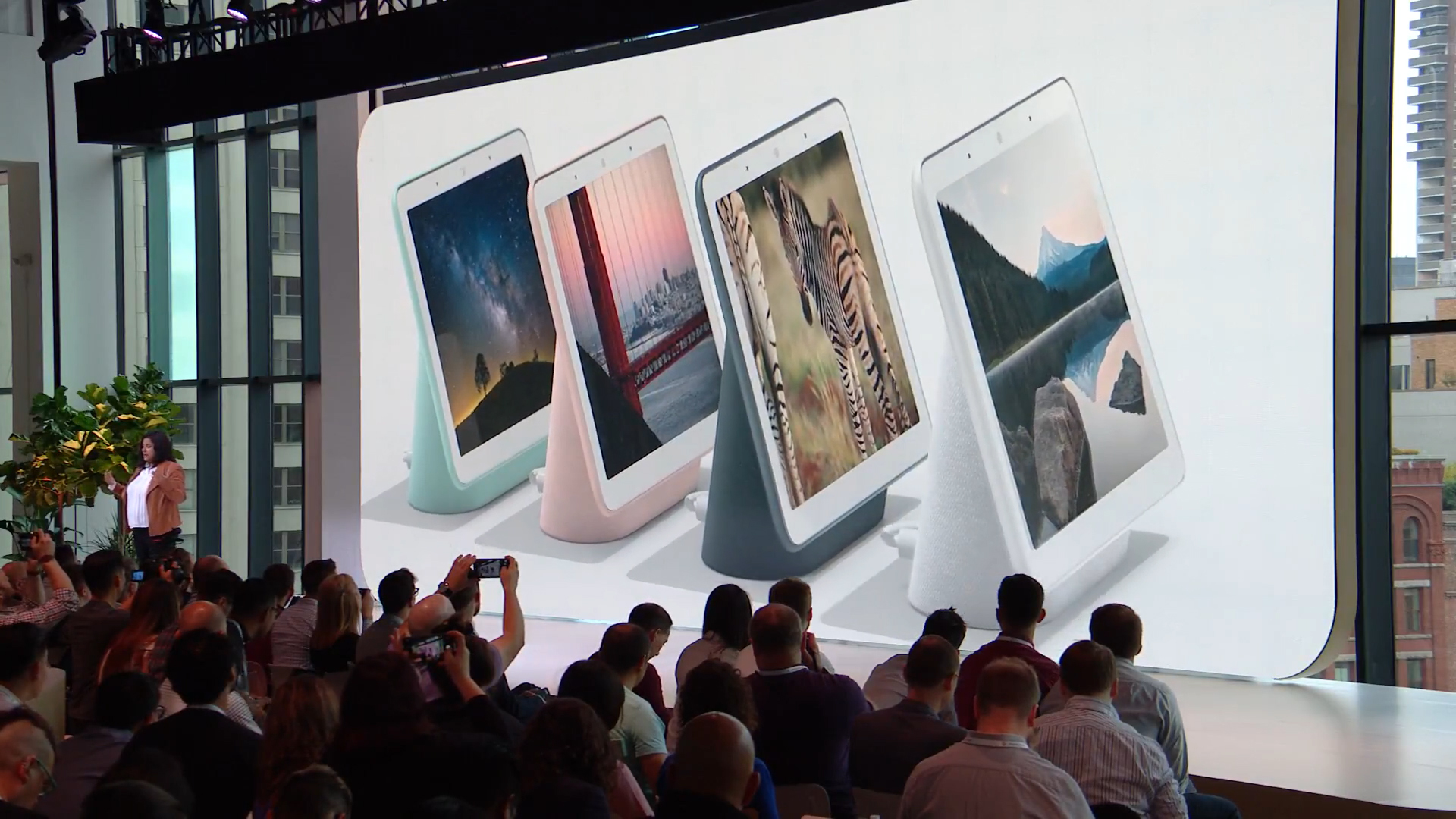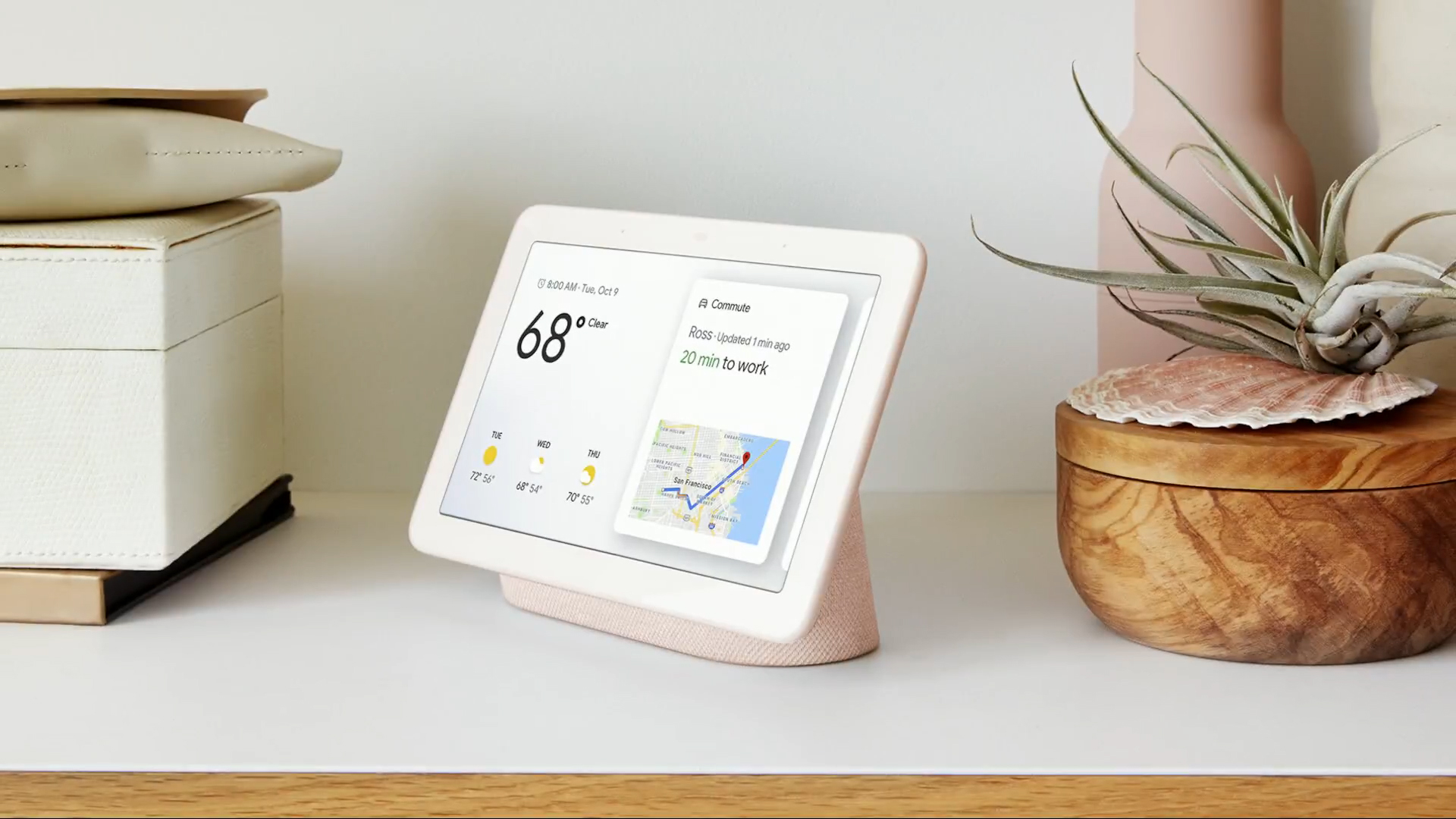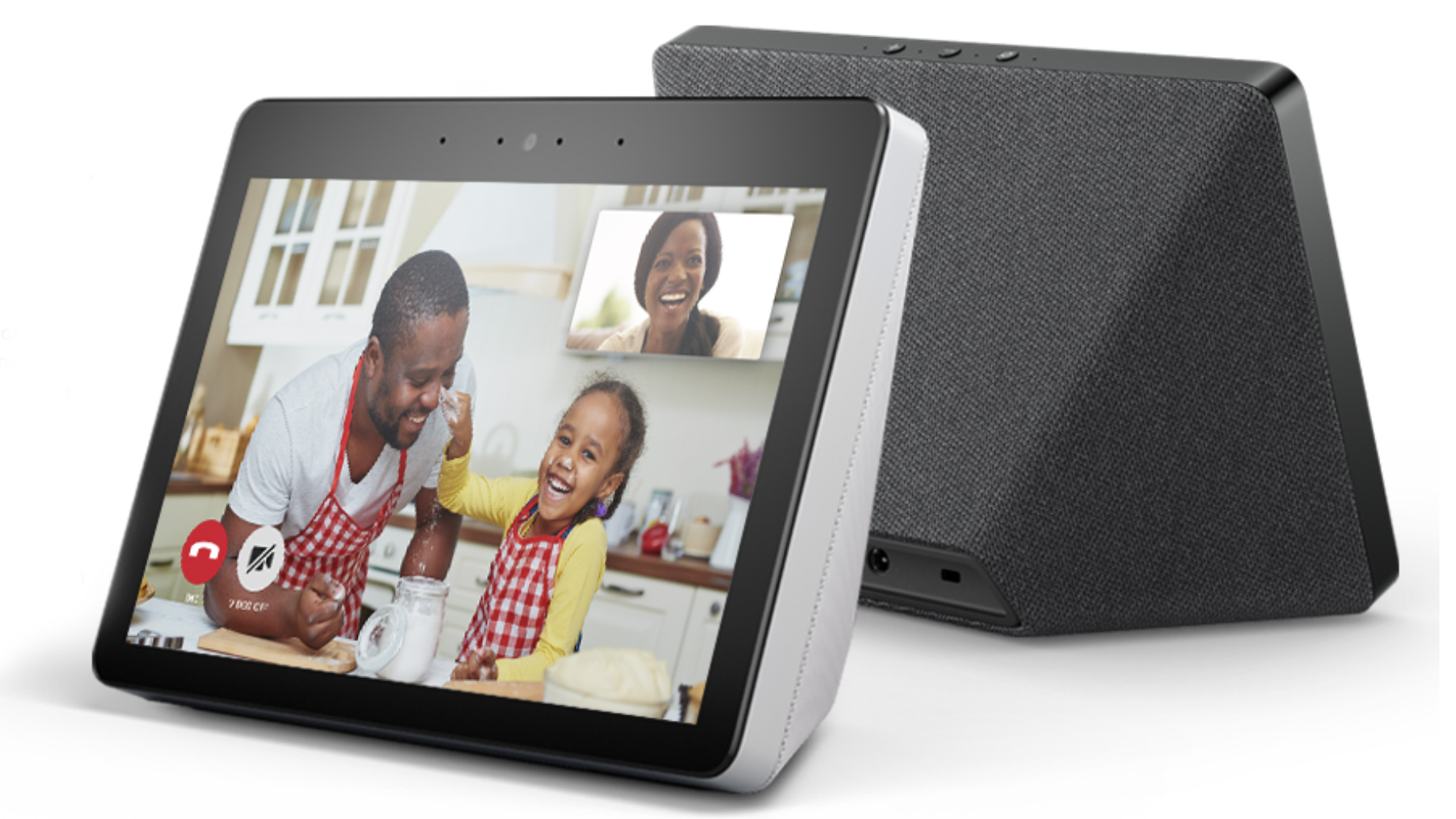Google Home Hub vs Amazon Echo Show
The battle of the smart displays

Sign up for breaking news, reviews, opinion, top tech deals, and more.
You are now subscribed
Your newsletter sign-up was successful
Up until today, if you wanted to buy a smart display device, chances are you may have gone for the Amazon Echo Show, the Alexa-enabled screen that first appeared in 2017, with a second-generation model currently available for pre-order.
However, with Google announcing its debut first-party smart display at its Pixel 3 event on October 9, the smart speaker could have a new rival to contend with - but which one should you buy?
We know how difficult it can be to choose the perfect smart speaker for your home, so we've put together this handy comparison guide to help you decide whether you should purchase the brand new Google Home Hub, or the Amazon Echo Show.
Design
The Google Home Hub carries a 7-inch screen, an equal size to the first-generation Amazon Echo Show, but around three inches smaller than the Echo Show's new model.
Google's screen is also supported by a much smaller speaker underneath - around the same size as the Google Home Mini - giving the impression of an almost floating display. Spooky.

Like the Google Home Mini, the speaker base comes with a fabric covering and rounded corners, with a number of color options to best fit with your decor (baby blue, pink, black, and white).
It's subtly different to the Amazon Echo Show, which encases its screen in a bulkier box-like structure, and only comes in monochromatic black or white.
Sign up for breaking news, reviews, opinion, top tech deals, and more.
Amazon win out on size factor, but the smart display is for your home, and knowing what fits best with your other furnishings or color schemes may well be a deciding factor.
- Want something small than the Home Hub? Check out our Echo Spot vs Echo Show 5 comparison
Features and apps
First things first, the Google Home Hub doesn't have a camera. That's in stark contrast to the Echo Show, which allows you to take pictures or host video calls with other Echo devices, or even the newly announced Facebook Portal that seems almost entirely focused on video calling.
But that's not to say the Google Home Hub is light on features. For one, it comes with a 'voice match' function that can recognize who is giving it orders and tailor the response to your individual user profile. That means you can start your day with tailored information on the day's weather, your commute, upcoming calendar meetings and anything else you've set up the Hub to remind you about.

Other features include automatically switching off at night-time, and a dedicated 'Downtime Mode' to prevent it distracting users - so, for homework or freelancers, basically.
Not to forget, this is a smart home device we're talking about. Google Home Hub unifies all the other smart home devices in your home - locks, cameras, thermostats, lights, etc - under 'Home View', letting you control them all separately from a drop-down dashboard.
It's a handy interface, though Amazon's far more widespread smart assistant Alexa - compared to Google Assistant - tends to be the de facto AI connecting between smart home devices, so the former may be a better bet for house-wide smart integration.
If we know anything about smart speakers, displays, and the like, it's that a lot of these features are likely to change or be updated in software patches down the line. So keep an eye out on this page for new fixes and updates that could swing the balance in favor of one or the other.
Apps
We couldn't do a fair comparison without looking at the specific apps and services available on each device.
If you're looking for a smart display for the kitchen, the Google Home Hub will chime in with step-by-step meal recipes direct from Tasty.co, with accompanying photos and videos to show you what might have been (or just to salivate over). It will also display images from your Google Photos account for your screensaver (so keep it clean, you), using a machine learning algorithm to only pick out the largest and sharpest images, or to collate all the photos that include a certain face or person.

The Google Home Hub is also perfectly placed to make use of Youtube - you know, the biggest video sharing site on the internet - that is also owned by Google's parent company Alphabet. There's an integrated Youtube app optimized for the display, and seems geared directly towards How To videos, as well as songs and playlists for... practically all music. Google Home Hub buyers will even get 6 months Youtube Premium for free.
Amazon's Echo Show isn't allowed anywhere near Youtube, which is unsurprising given the advantage it gives to the Google Home Hub. But Amazon does have a near-monopoly of retail and streaming services that will only work in tandem with an Alexa-enabled smart speaker. So if you want voice-activated shopping on Amazon Prime, or access to Amazon Music / Music Unlimited, it would make more sense to pick the Echo Show.
Price
The Amazon Echo Show currently retails at $230 / £220 / AU$350, with the incoming second-generation model matching it to the dollar.
The Google Home Hub is comparatively easier on the wallet at only $149 / £139 (around AU$210), and is more in the price range of the screen-less Amazon Echo.
Both products' releases might be too close to think of any really sudden price drops this Black Friday or Cyber Monday, but if there is that may be a enough to sway you either way.
Which one should I buy?
It's early days for Google's contender, but it looks it offers a more complete package for users wanting smart integration with Google services, or or just a display focused on watching videos instead of calling your friends and family.
However, the camera is a sore loss, and will equally be key piece of functionality for a lot of buyers. And while the Google Home Hub has a clear advantage with the particular Google-owned services like Youtube and Google Photos integrated into it, naturally this works the other way.
Amazon's Echo devices are the only ones linked up to your Amazon Prime or Amazon Music account - if you have them - and still make a persuasive case for sticking with the same family of products and services to get the most of their compatibility. Amazon's smart assistant, Alexa, is also a lot more ubiquitous across other smart home devices, and is more likely to be compatible with any other smart purchases you've already made.
So are you game for the Echo Show's camera features and Amazon services, or tempted by the Google Home Hub's video-first mentality? You can check our in-depth run-downs of both devices at the links below.

Olivia was previously TechRadar's Senior Editor - Home Entertainment, covering everything from headphones to TVs. Based in London, she's a popular music graduate who worked in the music industry before finding her calling in journalism. She's previously been interviewed on BBC Radio 5 Live on the subject of multi-room audio, chaired panel discussions on diversity in music festival lineups, and her bylines include T3, Stereoboard, What to Watch, Top Ten Reviews, Creative Bloq, and Croco Magazine. Olivia now has a career in PR.